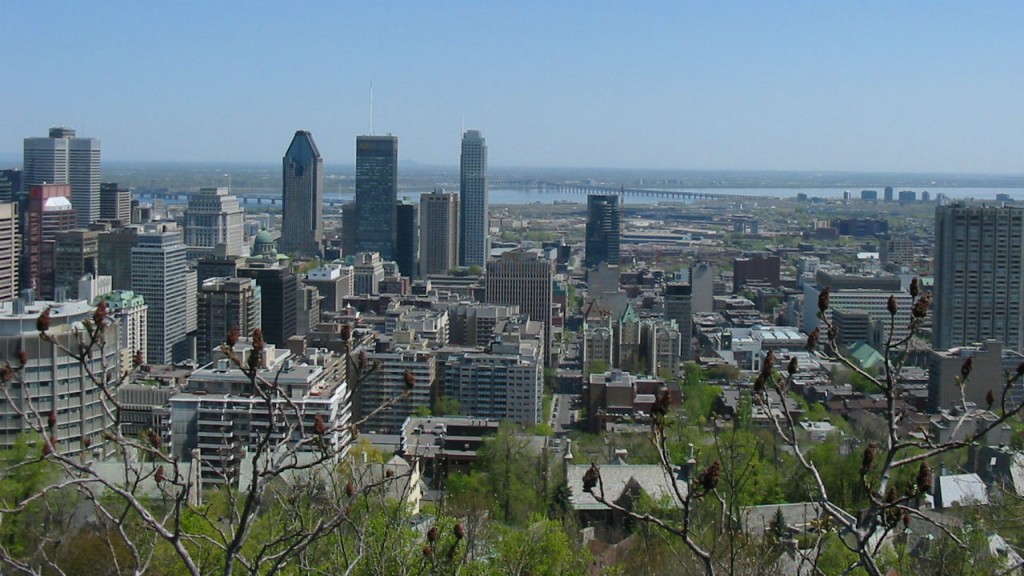
CDPQ Infra has announced the official launch of its project to build the largest public transportation network in Greater Montréal in 50 years: the Réseau express métropolitain (REM).
Less than two years after the project was announced, the REM will become a reality. Construction will start in April. Initial testing will be conducted at the end of 2020. The first riders will begin boarding in the summer of 2021.
Thanks to close collaboration with its partners, CDPQ Infra developed innovative solutions to achieve its objectives:
Construction of a sustainable, high-quality public transportation system with high frequency and quick travel times.- Met the $0.72/passenger-km cost target, which the ARTM will use to set it rates.
- Kept within announced financial parameters, with construction costs of $6.3 billion, a less than 5% variation from the preliminary estimates.
- No additional contribution from governments and the same estimated return levels.
Following the rigorous analysis of the proposals received, the winning consortia are:
Infrastructure engineering, procurement and construction (EPC)
- Groupe NouvLR - SNC Lavalin Grands Projets Inc., Dragados Canada Inc., Groupe Aecon Québec Ltée, Pomerleau Inc., EBC Inc. Participants (NouvLR Conception) - SNC Lavalin Inc., Aecom Consultants Inc.
Provision of rolling stock and systems and operation and maintenance (RSSOM) contract
- Groupe des Partenaires pour la Mobilité des Montréalais (PMM) - Members: Alstom Transport Canada Inc.; SNC-Lavalin O&M Inc.
The two selected consortia will harmonize their respective proposals in the next few months to finalize the details of the schedule and begin work in the spring.
The integrity, fairness, probity and transparency of the process were confirmed by the independent committee comprised of three members external to CDPQ Infra and la Caisse - Me William J. Atkinson, Ph.D., Ad. E., the Honourable Me Marie Deschamps, C.C., Ad. E., former justice of the Supreme Court of Canada and corporate director, and Jean-Pierre Desrosiers, C.M., FCPA, FCA, corporate director. External auditors also monitored each step. Their certifications are available for review.
Throughout the call for tenders process, the companies involved in the competition produced high quality work and they demonstrated openness, which led to today's results. CDPQ Infra would like to thank them for their hard work.
"Today we can confirm that construction of the Réseau express métropolitain will begin in April. The REM is now a reality," stated Michael Sabia, President and Chief Executive Officer of Caisse de dépôt et placement du Québec. "Since the very start of the project, less than two years ago, we have been meeting with the public, municipalities, transportation companies, and other stakeholders. We listened to their ideas and suggestions, which turned into innovative solutions and continuously improved our project.
"Through hard work with the consortia, we met our objectives for the REM. The network will provide frequent and fast service, making the day-to-day easier for Greater Montréal. The return from this investment will benefit all Quebecers in their retirement, and with around 65% local content, Québec companies will be actively involved in building this new network," added Mr. Sabia.
"The last few months of discussions led to solid improvements, and we thank the companies that participated in this call for tenders. The REM's construction will contribute to Québec's economic development by creating at least 34,000 local jobs. We're excited to soon see a brand new public transportation network built with cutting-edge technology in Greater Montréal," added Macky Tall, President and Chief Executive Officer of CDPQ Infra.
The dialogue established with all stakeholders will continue throughout the project to ensure that the REM integrates harmoniously in the various communities. To that end, a project management office will be created to oversee the planning of all future work and its coordination with the partners. A community relations office will be created to maintain close communication with the public.
An advisory committee will also be set up with the City of Montréal to discuss urban planning around REM stations. Inspired by international best practices, contests will be held for the urban planning around the Bassin Peel station entrances in the developing Griffintown and Pointe-Saint-Charles neighbourhoods bordering it. Details will be provided in the coming months.
"We think it's critical for the REM to contribute to the vitality of neighbourhoods by integrating harmoniously with innovative urban planning. Today we're proposing an architectural concept based on this approach, and with the support of our partners and communities, the REM will be rooted in the metropolis. This is a major project for Greater Montréal residents, who are important to its success," concluded Mr. Sabia.
In parallel with the REM's planning and development, la Caisse identified additional attractive investment opportunities for its infrastructure portfolio. Three shared-use, existing infrastructures, namely the Mont Royal tunnel, Central Station (rail infrastructure) and the Viaduc du Sud, have been or will be acquired and grouped in a new subsidiary of la Caisse (InfraMtl.co) to ensure continued public use.
This subsidiary will maintain these infrastructures shared with current and future operators. It will also generate a stable commercial return comparable to that of assets already in the portfolio.
Once the consortia's proposals are harmonized and their respective schedules are combined, a work schedule will be released. Following this, construction of the REM will begin in April. After a testing period at the end of 2020, the first branch of the REM will be operational in the summer of 2021.


